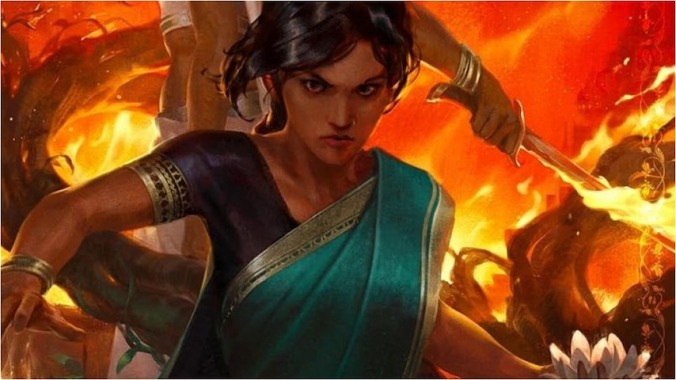The Lotus Empire Offers a Blockbuster Conclusion to the Burning Kingdoms Trilogy

It is a truth universally acknowledged that many fantasy trilogies fail to stick the landing in their final installments. We don’t like to talk about it much, but some of the most popular, critically acclaimed, and generally beloved fantasy series have endings that are….let’s just call them disappointing, at best. Whether the plot feels rushed, key romances or character bonds fizzle, or some important element of world-building collapses under the weight of its own intricacy, such a failure is always gut punch, if only because the rest of the story that preceded the ending was just that good. Granted, many of those same series are still very much worth reading quite precisely because they are high quality enough to overcome a mediocre conclusion. But it’s hard not to wonder what might have been. So when a series ender does manage to offer its readers a satisfying, emotionally resonant conclusion to literal years of story, it should be thoroughly celebrated. It’s not a small thing, and it’s certainly not guaranteed.
This is a lot to say that what author Tasha Suri has pulled off in The Lotus Empire, the final installment of her Burning Kingdoms trilogy, is genuinely impressive. A sweeping conclusion to one of the best epic fantasy series in recent memory, it’s both hopeful and heartbreaking, painfully bleak and unabashedly romantic by turns. A finale with genuine stakes, real loss, lots of action, and the sort of emotional payoff that can only come from three books’ worth of narrative build-up, it’s a triumph that will satisfy readers of all stripes.
The Lotus Empire picks up in the aftermath of the devastating events that closed The Oleander Sword. Parijatdvipan empress Malini has finally claimed her throne, as the nameless gods once promised. But in order to unify her new court and consolidate her power, she must promise the priesthood that once supported her (religious zealot) brother that, in exchange for crowning her, she’ll agree to burn on a sacrificial pyre when the time is right, as so many of her ancestors once did to guarantee her kingdom’s prosperity. Ahiranya priestess Priya is now thrice-born, a supreme Temple Elder in command of great magic who has sacrificed everything to serve the ancient, immortal nature spirits known as the yaksa. But when she returns from the failed murder attempt on Malini’s life that closed the series’ second book, the yaksa are now wearing the faces of dead temple faithful from her past, and forcefully insisting that Priya submit to their will. (This is part of a decidedly creepy plot to orchestrate the return of their mother Mani Ara and usher in a new Age of Flowers, ensuring yaksa supremacy once more.)
Both women have become increasingly isolated in their new positions of power, as the yaksa grow crueler and more controlling in Ahiranya and the various court factions jostle for control in Parijatdvipa. As Malini searches for a weapon capable of killing one of the immortal creatures in a last-ditch attempt to hold on to her throne, Priya grows steadily more powerful (and increasingly strange) as the yaksa’s influence on her increases. Elsewhere, former Temple Elder Bhumika, who was exiled from Ahiranya and had her memory wiped clean, must deliver an important message of potential salvation to a monastery of warrior-like priests. The encroaching magical disease known as the rot is spreading more quickly than ever before, and strange paths have opened up through the world. A dangerous and ancient power is rising, and none of them may be enough to stop it.
-

-

-

-

-

-

-

-

-

-

-

-

-

-

-

-

-

-

-

-

-

-

-

-

-

-

-

-

-

-

-

-

-

-

-

-

-

-

-

-








































